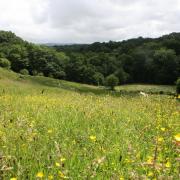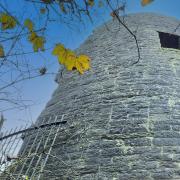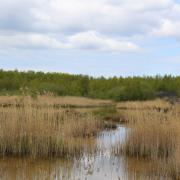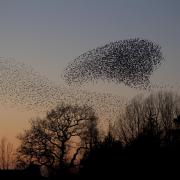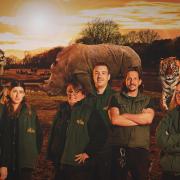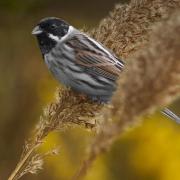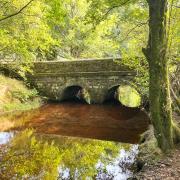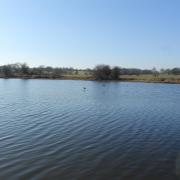Thousands of greyhounds are killed when their racing days are over.Amanda Griffiths meets the Blackpool woman trying to save them
MAIN PICTURES BY JOHN COCKS
THE sound of barking dogs at a private kennel cuts through the air like a rusty knife. Yet the greyhounds at the nearby rescue centre remain elegant and dignified, restricting themselves to a welcoming wet nose through the wire.
This is the Blackpool home to some of the greyhounds discarded because they are no longer able to race. Around 10,000 are retired from the tracks each year. The lucky ones are kept for breeding or they are re-homed with families. Many are abandoned and some are simply put to death.It's a fate which has provoked high profile campaigns by animal-lovers, notably actress Annette Crosby and writer Jilly Cooper. Another supporter is Bolton-born Lucille Cavadino, the owner of a quartet of rescued greyhounds. She has been involved with Greyhound Rescue West of England for eight years.When she and her husband moved to Blackpool there was no group rehoming greyhounds so she contacted GRWE and her call prompted the expansion of the organisation into Lancashire.
'It's the biggest regional charity dedicated to looking after rescued greyhounds,' says Lucille, 'and it now stretches all the way up the west coast of the UK.
'Basically, we take in rescued and abandoned greyhounds and rehabilitate them. They have probably just been dumped straight from the race track and not been in a family home before, so as well as looking after them medically we assess them for their suitability for different homes, looking at things like whether they're good with children, other dogs or pets
'They come to us from various sources - from dog wardens or from owners and trainers who have raced them. Most have been dumped, we don't know their background or what has happened to them which is why we have to go through the assessment process before we can rehome them.'We are very committed to putting the right dog with the right home because we want it to stay there for the rest of its life.' And it's not just the dogs that have a thorough assessment but the potential new owners, too.
'We firstly visit people at home to talk in the main about their lifestyle and what they want from a dog, then we'll try and match the right dog with the right home. They'll often pick the one with the saddest eyes, when actually that might not be the right one for them.'
Lucille has been working since the beginning of the year to find suitable kennels for the rescued greyhounds while they are waiting to be rehomed. Since the North West branch went live in April, Lucille and her team of volunteers have successfully re-homed six greyhounds, but the sad reality is that the greyhound compound still has six more dogs waiting for a new home, with lots more still out there.
'We have got the capacity for seven or eight dogs here,' says Lucille, 'but we could have more if the funding allowed.We are a registered, reputable charity that relies on donations from the public, we get no funding from the racing industry. 'It costs about �600 to keep each dog in the kennels so we're grateful for any donation no matter how large or small.We find that when we re-home a greyhound the new owner does tend to make a donation.
On average it's probably about �90, but when people ask I tell them it's as much as they can or can't afford. At the end of the day it's more important they can afford to look after the dog once they get it home.
'People don't realise that although they're bred for racing they don't actually need a lot of exercise. They're known as the 40mph couch potato, built for speed not stamina. They're beautiful, elegant, gentle, huggable and funny.
'I was determined to have one so rang up a local charity where I lived and they had just got in seven greyhound puppies. It's very unusual to come across puppies because they're reared for racing and so normally go straight to trainers. I adopted one and when she came home she was the joy of my life. She was the one who got me interested and because I had a greyhound I got chatting to other people who had them and gradually became involved in greyhound rescue which have built up and up.
'Now most of my friends I've met through our dogs. Greyhound owners are sociable in a way other dog owners are not.'
You can find out more about the charity on www.grwe.com
A long pedigree
Greyhounds are usually dumped at about four or five years old,either because they've stopped running or because they've sustained an injury
All registered greyhounds are tattooed on the ears. This enables rescuers to trace their racing history and pedigree
Greyhounds are the oldest pure bred dogs, dating back to ancient Egypt. They feature in paintings inside the Great Pyramids.
A law passed during the reign of King Canute stated that common people were banned from owning a greyhound. The law also stated the destruction of a greyhound should carry the same capital punishment as the murder of a man President Lincoln had a greyhound on his family coat of arms and General Custer was a big greyhound fancier





